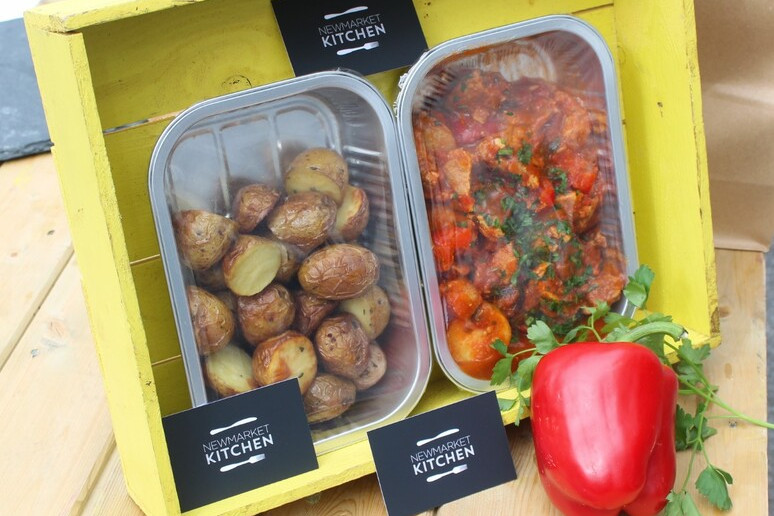A co-packer is a company that manufactures and packages foods or other products for their clients. Services can additionally include research & development, warehousing, distribution, and other assistance depending on the company.
Why Use a Co-Packer?
Reducing cost: You don’t have to buy equipment or rent space or work as many hours to raise your production.
Experience: If you are not already an established food company that is in production, you can rely on a co-packer to make your product.
Time: You can probably raise your production level, fill orders sooner, and get orders to the market faster. You can devote this extra time to things like management and marketing.
Regulations: You don’t have to deal with health inspections, HSE check-ups (as much as we do love them), equipment insurance, etc.
How Do I Find the Right Co-Packer?
Make a list of co-packers in your area that manufacture products similar to yours and set up interviews with them.
WHEN INTERVIEWING CO-PACKERS:
• Know your production costs.
• Make sure your business plan is up to date. This should include a marketing timeline that details projected sales by month, quarter, and year to gauge your ordering pattern. Prepare the following information for your meeting with a potential co-packer:
• Product specifications (SPECS): These are the characteristics that identify your product. These include: name, description, weight, packaging, nutritional values, labeling, and product ID # (UPC number).
• Process Instructions: Describe how your product is currently made. Detail specifics such as “mix ingredients gently for 1 minute” or “heating mixture to a temperature of 230°F.” This information will help your co-packer match their processing equipment to the manufacture of your product.
• Ingredients: List all components and necessary specifications. (Ex: “dried fruit, diced – ½”.”) Also, make sure to ask who is responsible for sourcing, ordering, and storing the ingredients.
• Product testing: If you haven’t already, run tests to determine shelf life and stability. Outside labs can be utilized to determine the needs for product stability and food safety.
• Professional Advice: Consult with your accountant, attorney, and your insurance company to see what will be required to protect your interests.
• Confidentiality/Non-Disclosure Agreement: Before handing over your recipe, make sure you have your attorney draw up a confidentiality agreement. Do not be surprised if you are asked to sign a
similar agreement. The manufacturer may want to protect their processes or they have clients that require confidentiality/nondisclosure.
• Tour the Manufacturing Plant: Ensure the facility has proper equipment and processes to produce your product. Walk through the facility and have them take you through the process from start to finish.
• Sanitation: Check the quality programs that are in place. Ask if they have any audited certification, i.e.: HACCP and others that you may require.
• Inspection: Determine where ingredients and finished products will be stored. If ingredients need refrigeration before processing, is the space adequate and the temperature maintained? If the finished goods require certain conditions, are they present? For example, chocolate should be stored at 65*F or below. Review logs that document inspection, testing, and quality control.
• Referrals: Ask for a list of current customers from the manufacturer. Call this list to see if the businesses are happy with the co-packer’s performance in terms of quality, on-time performance, and overall reliability.
• Financials and Company History: You want to make sure your co-packer is financially sound. You do not want any surprises during the middle of a production run for your product. Find out how long they have been in business and their experience level in contract packing.
• Cost: Ask for formal quote for your product. There are many factors that will determine your final cost. Are there any specific processes or special handling involved in your product that will affect pricing? How much product are you going to order? Pricing can run a broad range. Your co-packer will have minimum requirements for production runs usually based on cases, euro volume, or full shifts. Get several quotes for comparison.
The Bottom Line
Understanding your production process extremely well is imperative. The better you understand your own cost and quality drivers, the better you will be at working with your manufacturer. If you look like you are very prepared, you will have a better chance of engaging the correct co-packers. Far too many food entrepreneurs expect the co-packer to educate them.
Given that every co-packer is very different, do not settle on a co-packer who seems to be less than ideal for your company. You will be able to find a co-packer that will work with you to best fit your needs, you just need to know what you want.
How Newmarket Kitchen Can Help
Now that you know what a co-packer is and how to go about finding the right one, all you need is a place to perfect your recipe.
Newmarket Kitchen provides commercial kitchen facilities to food start-ups looking to develop a product, test new recipes and produce small to medium sized batches in order to test the market.
A perfect example of this is Sadie’s Kitchen, who came to Newmarket Kitchen in 2015 with an idea to create Ireland’s first 100% natural bone broth. After many late nights and a lot of hard work the brand took off and it wasn’t long before Sarah approached a co-packer manufacturer to take over production, leaving her to focus on managing, marketing and growing the business.
